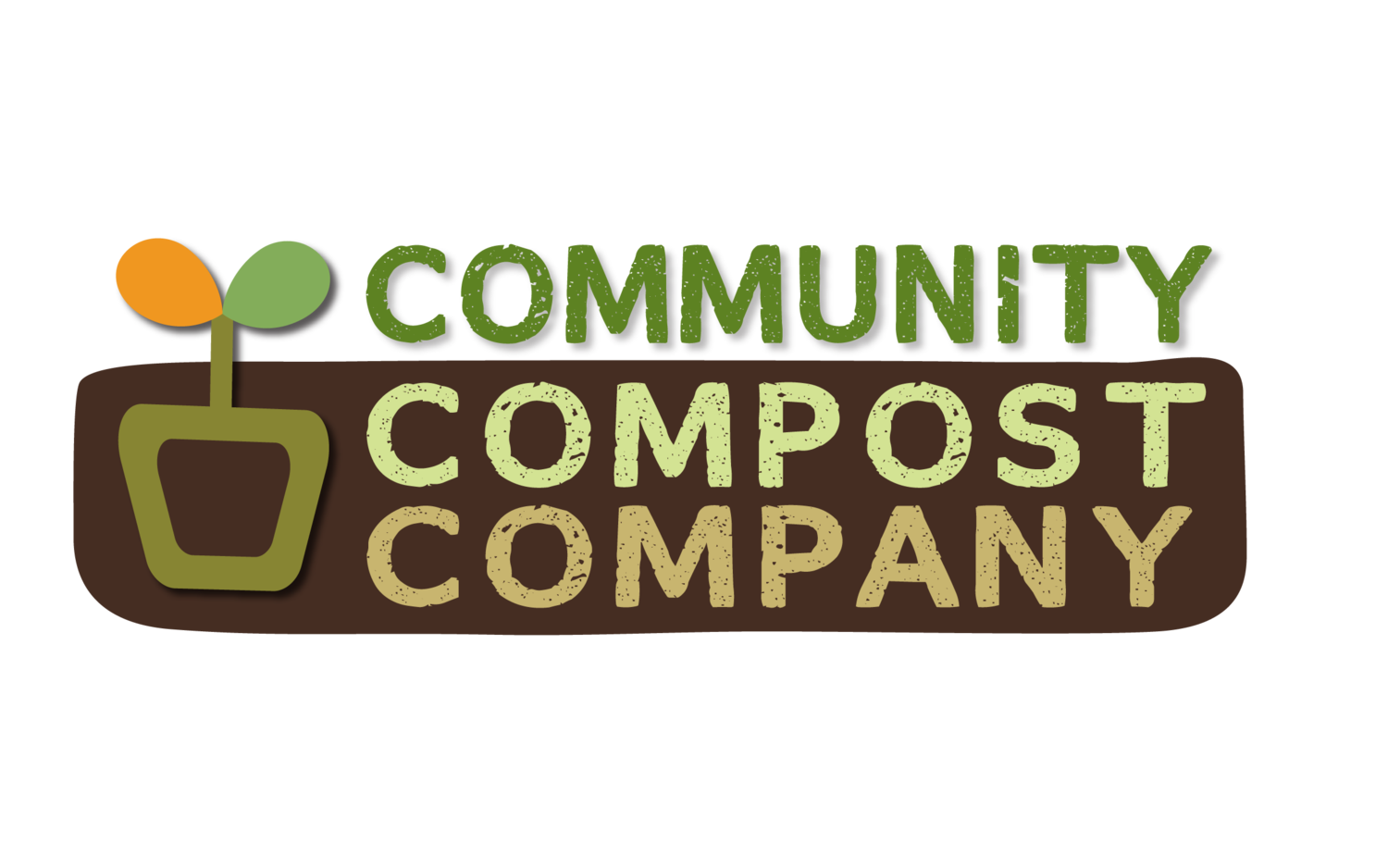WHY COMPOST?
Up to 66% of all waste going into landfills is organic material and 25-30% of that is food waste. We can work together to change that!
Composting is the biological process of recycling organic materials, like food scraps, into a nutrient-rich soil amendment called compost. This process diverts organic waste from harmful landfills and instead recycles it to be used in gardening and agriculture to improve the quality of the soil.
Community Compost Co. makes composting easy with our residential and commercial pick-up services. You simply sort your food scraps, and we do the rest of the hard work creating nutrient-rich compost!
WHat is compost?
Compost can be considered food for the soil. When organic materials (such as food scraps, food-soiled paper, wood chips, yard waste, manure) decompose aerobically (with oxygen), it creates a dark, crumbly soil amendment known as compost.
Adding compost to soil benefits health, structure, water retention, and plant vitality. Boosting organic matter in soil also aids the process of carbon sequestration, in which plants draw down carbon from the atmosphere to be stored in the soil.
You can purchase compost and other soil products through our sister brand Hudson Soil Company.
BENEFITS OF COMPOSTING
Composting helps to complete the natural cycling of nutrients back to the earth, leading to a healthier planet. Learn how soils are restored through composting – watch the video below!
Composting with Community Compost Co. helps to:
Reduce greenhouse gas emissions by removing organic material from the “waste stream” and returning it to the soil
Enhance the quality of food and help farmers boost crop yields with healthier soil
Improve water quality with enriched soil that allows for better water filtering
Reduce food waste - as you separate food scraps from the rest of trash, you are more aware of how much food you throw away
Build community and develop new green jobs to improve the local economy
HOW COMPOSTING WORKS
When organic materials, like food scraps, are disposed of in landfills, they decompose anaerobically (without oxygen), which creates methane, a powerful greenhouse gas 25x more potent than carbon dioxide. By diverting organic waste from landfills and recycling it into compost aerobically, we can mitigate methane production and create a resource—compost.
At Community Compost Co. we process all the food scraps we collect. A compost pile needs the proper mix of nitrogen rich materials (greens), carbon rich materials (browns), water, and air to decompose properly. To build our piles, we combine food scraps with other organic materials, such a wood chips, leaves and horse manure in specific ratios and add water for the proper moisture levels. We use the aerated static pile (ASP) method, where oxygen is delivered to the piles through an aeration system, which aids in the decomposition process.
Our piles get up to 150°F during the hot composting phase, ensuring that potential pathogens are killed off. When the compost is mature, after approximately 6 months, the piles drop to an ambient temperature. The result is a biologically rich soil amendment.
Learn more about our Compost Facility here.






